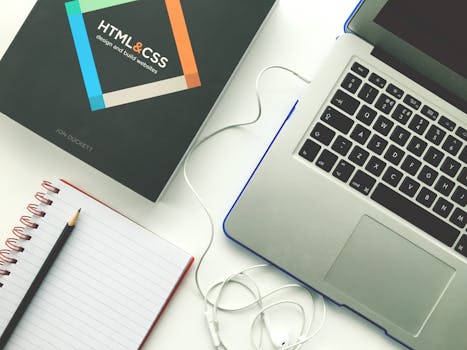A Little About Me...
So how in the world did I end up wanting to learn web development?

I was hired on at a large format printing company that was just starting up back in 2013 to be a sales rep for their wholesale division. My job would be to go around to the local printing shops and related companies or freelancers that needed wholesale printing services and establish relationships with them, building the business.
A short while after this occurred and my training and research in the industry was finishing up, the owners partner decided to part ways due to personal differences that I will not go into.
This made it difficult as the business was now the owner, myself, and a part time, mostly remote graphic designer that was in college getting his degree in design.
At this time I took it upon myself to learn Adobe Illustrator as this was the industry standard for vector graphics and in the large format industry you want to work with vectors when at all possible for scaling purposes...that's the point of large format...it's large, lol.
Mind you now, up to this point, prior to getting hired on to be a sales rep, I had no prior knowledge of graphic design, Adobe products (beyond having heard of Photoshop) or what large format printing even was.
Through many months and countless hours of YouTube tutorials on Adobe products I was handling all the graphic Design and the print production...printing the various medias, mounting the vinyl to the substrates for the signage, hemming and grommetting the banners...running the entire print shop while the owner focused on keeping us going and expanding and I am pleased to say that after the few years I was there the shop had grown well and had a decent amount of very large wholesale accounts and a steady run of retail clients as well.
After I left there I approached a prior wholesale client that did vehicle wraps and screen printing because I wanted to further my knowledge of the print industry and working with him for 2 years I taught myself Photoshop through the internet and YouTube again, as well as a few tips from my new employer. He taught me how to do vehicle wraps and screen print garments and a little web design that he had picked up years before...
Wait wait wait... did you read that right? Years before?

Well my friend, thats right. What he knew was how to use photoshop and the slice tool and bring that into Adobe Dreamweaver CS6 and convert text areas and activate the anchor tags and that was it, Dreamweaver would output a table based layout from the slices and spit it out for you. Wham bam thank you ma'am.
Well, needless to say, upon doing a little research myself into the current state of web development it turns out he was only about 8 years behind or so. He knew no markup, css, didn't know frameworks even existed and knew nothing of SEO, but he DID get me interested in it and for that I am eternally grateful.
Enter Lambda...
So Lambda offers a free 2 week web development mini boot camp that covers the very basic fundamentals of web development, intro HTML, CSS, and a taste of JavaScript. Don't let that last part about a taste of JavaScript overshadow the mini boot camps JavaScript portion. That's the majority of the curriculum for the 2 weeks and they go pretty far for only 2 weeks.
So I mentioned an interesting tuition model and curriculum. Let's skip over the tuition part for now and hit the curriculum first. So there are a bunch of coding boot camps that have been springing up over the last few years, saturating the market with sub-par coders with little to no foundational knowledge of actual programming principles and design patterns. Some have been good, many have been bad, and even a few of the ones that were thought highly of have gone under.
So what makes Lambda different?

Firstly, Lambda has 2 paths to choose from if you are interested in full stack web development. A part time course that is a year long (12 months) Mon-Thur 6:00 pm - 9:00 pm Sat 9:00 am - 12:00 noon pacific, and a full time course running right around 7.5 months (30 weeks) Mon-Fri 8:00 am - 5:00 pm pacific. The full time was definitely the course for me. When I go for something, I like to go all in, and the fact that I would be coding all day every day was actually very appealing to me. Much more so than the evening.
Cool, so whats the course look like? the first 5 weeks are on the Web Foundations...getting you used to HTML, CSS, JavaScript, a now industry standard form of version control called Git, from the creator of Linux, Linus Torvalds, and UI principles. Weeks 6-10 are getting a bit more advanced and we get into React, a frontend JavaScript library for building reusable components brought to us by the team at Facebook. We will learn Redux, React Router, HTTP/Ajax, and Functional Programming techniques.
That's it on the frontend side. Now for the back end. Weeks 11-15 will take us through Node.js, Express, SQL, SQLite, Authentication, and OAuth.
Now it's about this point that many boot camps will wrap up and have the final projects and wish you luck on your future endeavors. Not Lambda...now weeks 16-20 are going to introduce us to Data Structure and Algorithms, learning Python basics, Graphs, and Django, a Python framework. Weeks 21-25 will get into Networking and Computer Architecture, exposing us to C, a low level programming language, Operating Systems, Hash Tables.
That's right, Lambda is basically throwing a computer science course in with the web development to round out the students knowledge and strives to ensure the graduates coming from them are well rounded and have the ability to pick up anything that they will need to learn in a timely and efficient way.
Now comes the capstone project. Weeks 26-30 will be breaking up the students into small groups and giving them a project that they will be responsible to architect, code, and defend in a final presentation to the staff, students, and hiring partners...and to the internets, as they are recorded and uploaded to the YouTubes.
As for the tuition model...
Lambda has a few options again to choose from. You can pay full tuition up front at $20,000, half tuition up front at $10,000 and a one year ISA (Income Share Agreement), or $0 upfront and a 2 year ISA. So here is the interesting part of the ISA. The contract you sign states that you will pay Lambda 17% of your income for 2 years, not to exceed $30,000, and this only takes effect after you are making at least $50,000 salary. So if you land a dream job and are raking in the money, they don't continue to take 17% of the checks once you hit that $30,000 mark. The agreement also does not take effect until you have landed a job using the skills that you learned at Lambda, something involved with tech and web. If you go out and get a job selling real estate and are making over that $50,000 mark, the ISA isn't active as it is not in the industry. It also will go on hold if you end up losing that job until you find another.
Lambda also has other courses as well. They have a Data Science Course, an Android Development and Computer Science Course, an IOS Development and Computer Science Course, a UX Design Course, and are looking to expand even more. For more info on these check out Lambda School's Website yourself to see what they have to offer. I would highly recommend it, even for those coming in with no prior knowledge at all, as there are quite a few in every cohort that comes through and lambda has done an amazing job with them.